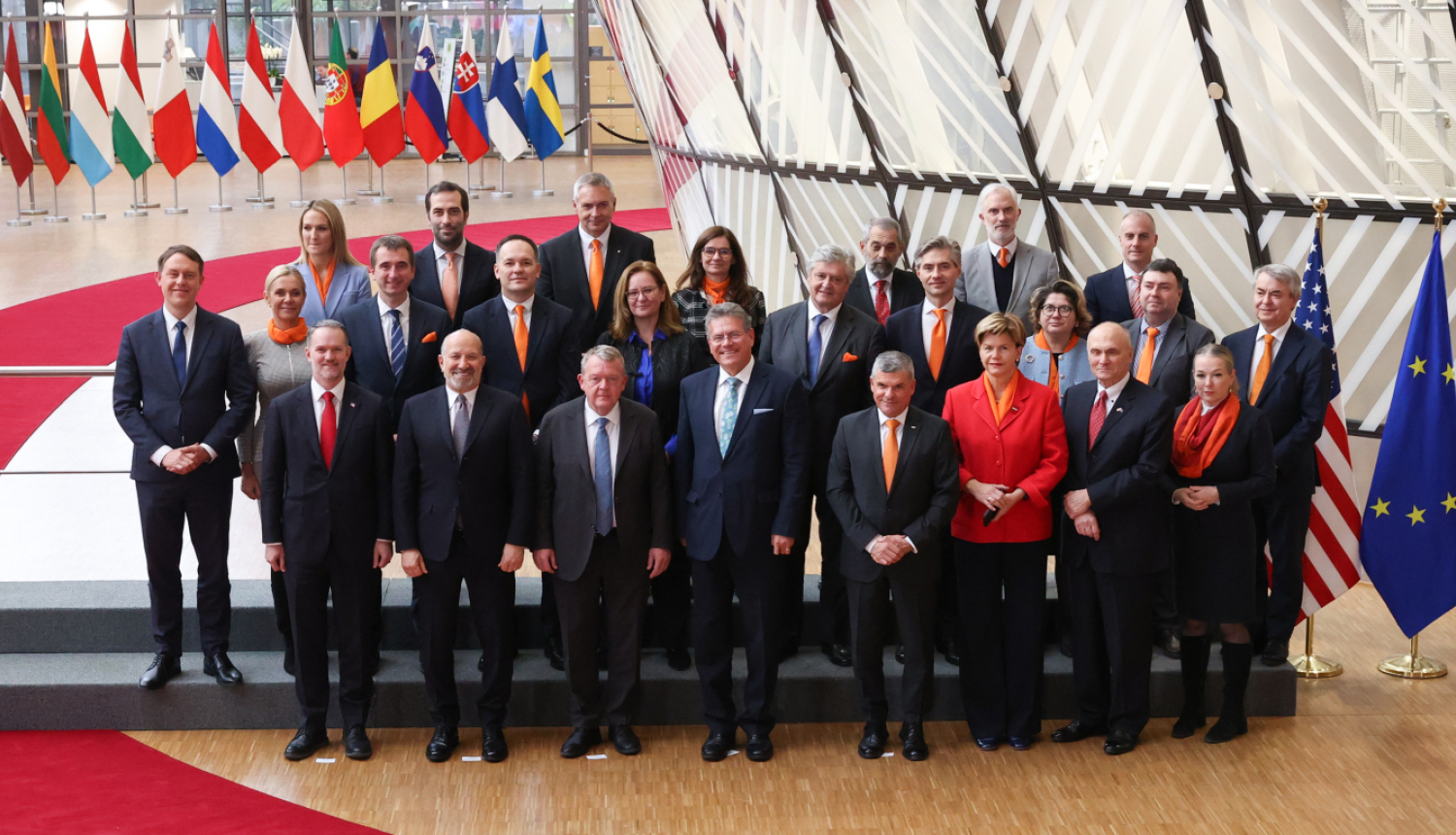BAKU, Azerbaijan, November 25. Latvian Foreign Minister Baiba Braže joined her EU counterparts at the EU Foreign Affairs Council on Trade in Brussels to discuss EU–U.S. and EU–China trade relations, as well as ongoing EU bilateral negotiations, with a particular focus on talks with India, Trend reports via Latvian MFA.
Minister Braže highlighted that EU ministers recently met with U.S. Secretary of Commerce Howard Lutnik and U.S. Trade Representative Jameson Greer to review the state of transatlantic trade, bilateral investment flows, commercial opportunities, and cooperation in defense, energy, and technology.
“The U.S. is and will remain our strategic partner and close ally. Strengthening transatlantic trade relations and cooperation with the U.S. is essential for the EU,” Braže stated.
Several EU member states, Estonia, Finland, Germany, Latvia, Lithuania, Poland, and Sweden — urged the European Commission to propose additional tariff increases on products originating from Russia and Belarus.
Braže stressed that in international trade, it is vital for public funds and national resources to support partners who respect international law and the core principles of the UN Charter. She emphasized the need for the EU to leverage all available tools to reduce dependence on trade with unreliable and hostile actors, underlining that this is a matter of European security.
In discussions on other EU agreements and ongoing bilateral negotiations, Braže underscored the importance of using every available EU instrument, from trade agreements and new partnerships to trade-defense tools, to ensure that European companies can successfully expand into new markets and contribute to economic growth.
“It is equally important to ensure that EU businesses are not subjected to unfair competition,” she added.
Ministers welcomed the European Commission’s progress in negotiations with India, Indonesia, and Thailand. Braže highlighted that the expansion of the EU’s global trade agreement network over the past two decades has delivered clear benefits. For example, after the entry into force of EU free trade agreements, exports to South Korea increased nearly tenfold (since 2011), to Canada by 166 percent (since 2017), and to Japan by 49 percent (since 2019).
Addressing the EU–Mercosur Free Trade Agreement, Braže called it a strategic partnership with major Latin American economies that will open new markets for Europe and Latvia while supporting job creation. Once concluded, the agreement would form the world’s largest free trade area, covering nearly one-quarter of global GDP and creating a market of more than 700 million consumers. It is expected to save EU businesses up to 4 billion euros annually in export duties, supported by lower or fully eliminated tariffs and streamlined customs procedures. For example, the agreement foresees significant tariff reductions in the EU — up to 20 percent for machinery, vehicles, and ICT products, and around 30 percent for dairy products, wine, and chocolate.
On EU–China trade relations, ministers discussed the ongoing need to advance the EU’s risk-reduction strategy, particularly by diversifying trade partners and suppliers of critical raw materials.







